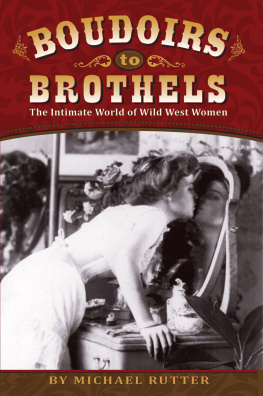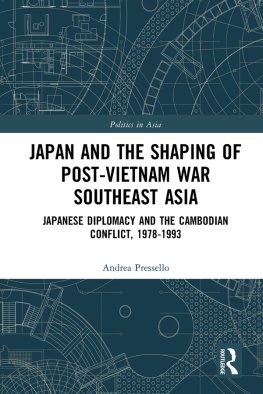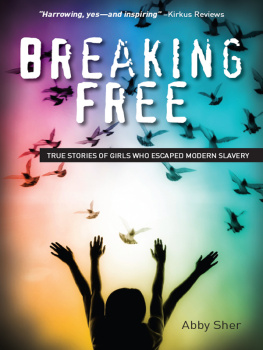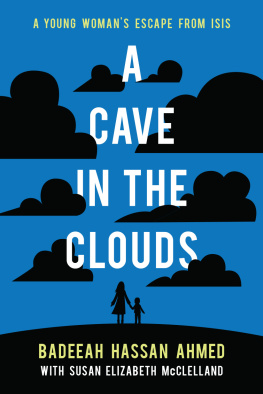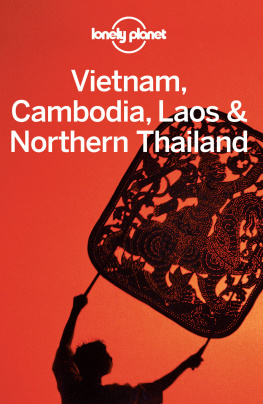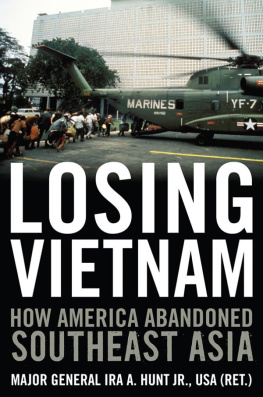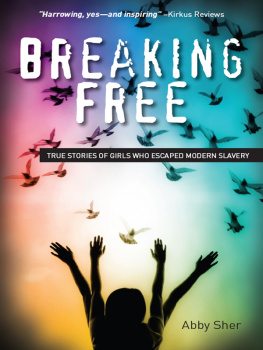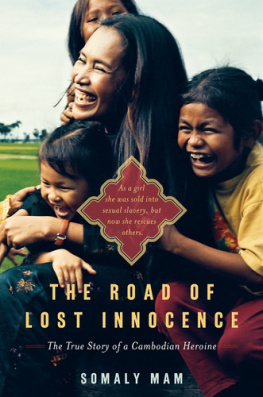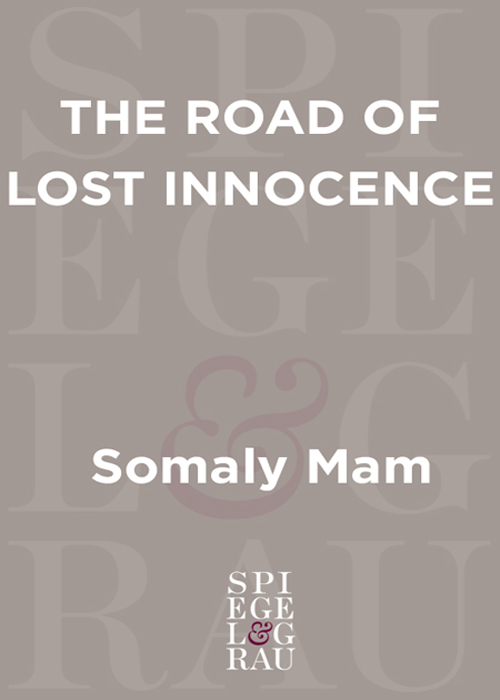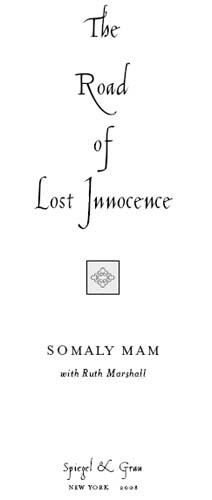In 1986, when I was sold to a brothel as a prostitute, I was about sixteen years old. Today there are many far younger prostitutes in Cambodia. There are virgins for sale in every large town, and to ensure their virginity, the girls are sometimes as young as five or six.
In Cambodia, and throughout Southeast Asia, tens of thousands of minor children are forced into prostitution annually. They are raped and beaten, often for years. Many are killed.
I dedicate this book to the thousands of little girls who are sold into prostitution every year.
By far the lowest statistic for the number of prostitutes
and sex slaves in Cambodia is between 40,000 and 50,000.
It can be expected that at least 1 in 40 girls born in
Cambodia will be sold into sex slavery.
2005 report by Future Group,
a Canadian nongovernmental organization
.1.

The Forest
My name is Somaly. At least thats the name I have now. Like everyone in Cambodia, Ive had several. Names are the result of temporary choices. You change them the way youd change lives. As a small child, I was called Ya, and sometimes just NonLittle One. When I was taken away from the forest by the old man, I was called Aya, and once, at a border crossing, he told the guard my name was ViriyaI dont really know why. I got used to people calling me all sorts of names, mostly insults. Then, years later, a kind man who said he was my uncle gave me the name Somaly: The Necklace of Flowers Lost in the Virgin Forest. I liked it; it seemed to fit the idea of who I felt I really was. When I finally had the choice, I decided to keep that name as my own.
I will never know what my parents called me. But then I have nothing from them, no memories at all. My adoptive father once gave me this typically Khmer advice: You shouldnt try to discover the past. You shouldnt hurt yourself. I suspect he knows what really happened, but he has never talked to me about it. The little I do know Ive had to piece together with vague recollections and some help from history.
I spent my earliest years in the rolling countryside of northeastern Cambodia, surrounded by savanna and forests, not far from the high plains of Vietnam. Even today, when I have the chance to go into the forest, I feel at home. I recognize smells. I recognize plants. I instinctively know whats good to eat and whats poisonous. I remember the waterfalls. The sound of them is still in my ears. We children would bathe naked under the cascading water and play at holding our breath. I remember the smell of the virgin forest. I have a buried memory of this place.
The people of Bou Sra, the village where I was born, are Phnong. They are an old tribe of mountain people, quite unlike the Khmer who dominate the lowlands of Cambodia. I have inherited the typical Phnong dark skin from my mother. Cambodians see it as black and ugly. In Khmer, the word Phnong means savage. Throughout Southeast Asia, people are very sensitive about skin color. The paler you are, the closer to moon color, the more highly you are prized. A plump woman with white skin is the supreme object of beauty and desire. I was dark and thin and very unattractive.
I was born sometime around 1970 or 1971, when the Troubles began in Cambodia. My parents left me with my maternal grandmother when I was still a small child. Perhaps they were seeking a better life, or perhaps they were forced to leave. Before I turned five, the country had been carpet-bombed by the Americans. Then it was seized by the murderous regime of Pol Pots Khmer Rouge. The four years of Khmer Rouge rule, from 1975 to 1979, were responsible for the deaths of about one in five people in Cambodia through execution, starvation, or forced labor. In the storm of events, countless others were simply swept away from their villages and families without leaving a trace. People were displaced to work camps, where they toiled as slaves, or were forced to fight for the regime. There are many reasons why my parents might have left the forest.
The story I like to tell myself is that my parents and grandmother always had my best interests at heart. Among the Phnong, the mothers lineage determines ethnicity. So despite my father being Khmer, when my parents left, my place was with the Phnong in Mondulkiri Province. Not long thereafter my grandmother would also disappear, much too soon for me to have any lasting memory of her. Mountain people up and leave for any old reason, as soon as anything displeases them. No one expected an explanation, especially not during those troubled years. So when my grandmother left the forest, no one knew where she went. I dont think I was abandonedshe probably thought Id be safest in the village. There was no way she could have known that the forest would not be my home for long.
Our village was nothing more than a dozen round huts clustered in a forest clearing. The huts were made of plaited bamboo, their straw roofs low to the ground. Most families shared a single large hut with no partition between the communal sleeping platform and the cooking area. Other families kept themselves separate. With no parents or other family in the village, I would sleep on my own in a hammock. I lived like a little savage. I slept here or there, and ate where I could. I was at home everywhere and nowhere. I dont remember any other children who slept alone among the trees, as I did. Perhaps I wasnt taken in by anyone because I was of mixed racepart Phnong and part Khmer. Or perhaps I just made a decision to be by myself. Being an orphan in Cambodia is no rare condition. It is frighteningly ordinary.
I wasnt generally unhappy, but I remember feeling cold all the time. On particularly bitter or rainy nights, a kind man, Taman, would make space for me in his home. He was a Cham, a Muslim Khmer, but his wife was Phnong. I cant remember her name, but I thought she was beautiful with her long black hair tied behind her head with a bamboo stick, her high cheekbones, and a necklace made of shiny black wood and animal teeth. She was nice to me. Sometimes she would try to wash my long hair, rubbing the ash of a special herb into it to clean it, and then oiling it with pig fat and combing it with her fingers while she sang. She wore an intricately woven black and red cloth around her waist. Some women would leave their breasts bare, but Tamans wife covered hers.
Taman, like the other men, wore a loincloth that left his buttocks bare. The men wore strings of beads and bows strapped to their backs and had thick cylinders of wood pierced through their earlobes.
We children would be naked most of the time. We would play or help make clothes together out of thick, flat leaves wrapped with vines. Tamans wife would weave for hours on end, sitting on the floor with her legs stretched out in front of her and the bamboo loom tied to her feet.
Her teeth were filed into sharp points. Phnong girls file and blacken their teeth when they become women, but I left the village long before the time for filing teeth.
I was always looking for a mother so that I could be held in her arms, kissed, and stroked, like Tamans wife held her children. I was very unhappy not to have a mother like everyone else. My only confidants were the trees. I talked to them and told them about my sorrow. They listened, understood, and made discreet signs in my direction. They were my only true friends, along with the moon. When things got unbearable, I confessed my secrets to the waterfalls, because the water couldnt reverse its flow and betray me. Even today, I sometimes talk to trees. Other than that, I almost never spoke as a child. There wouldnt have been much pointnobody would have listened.



